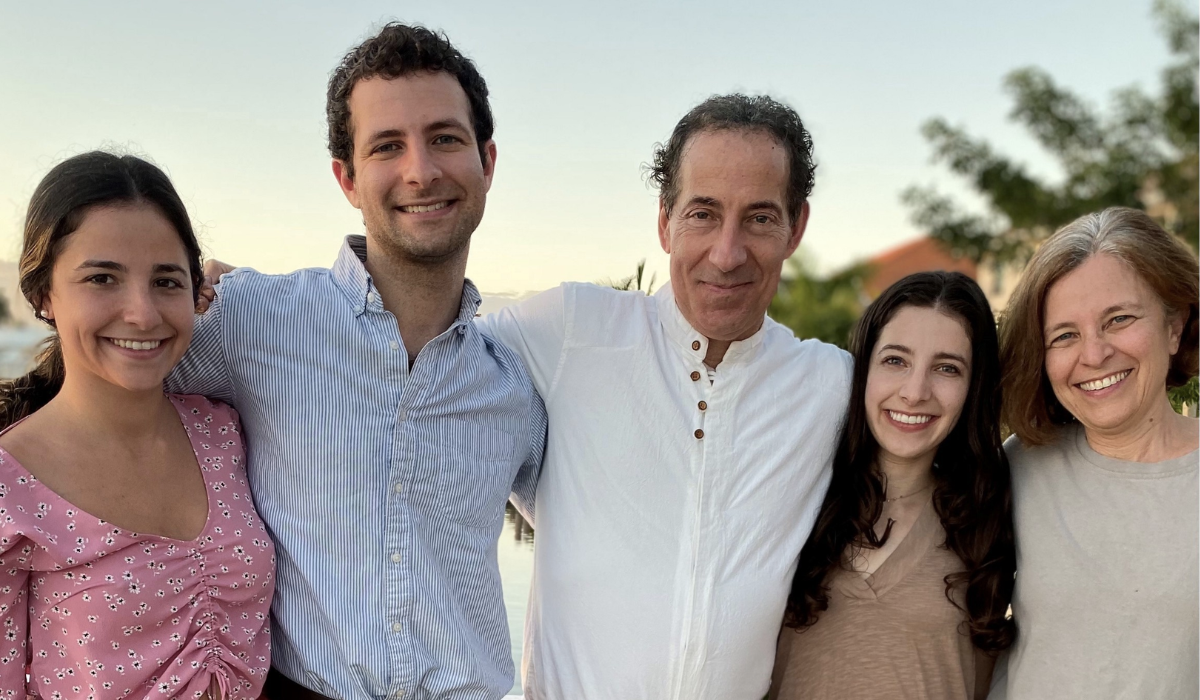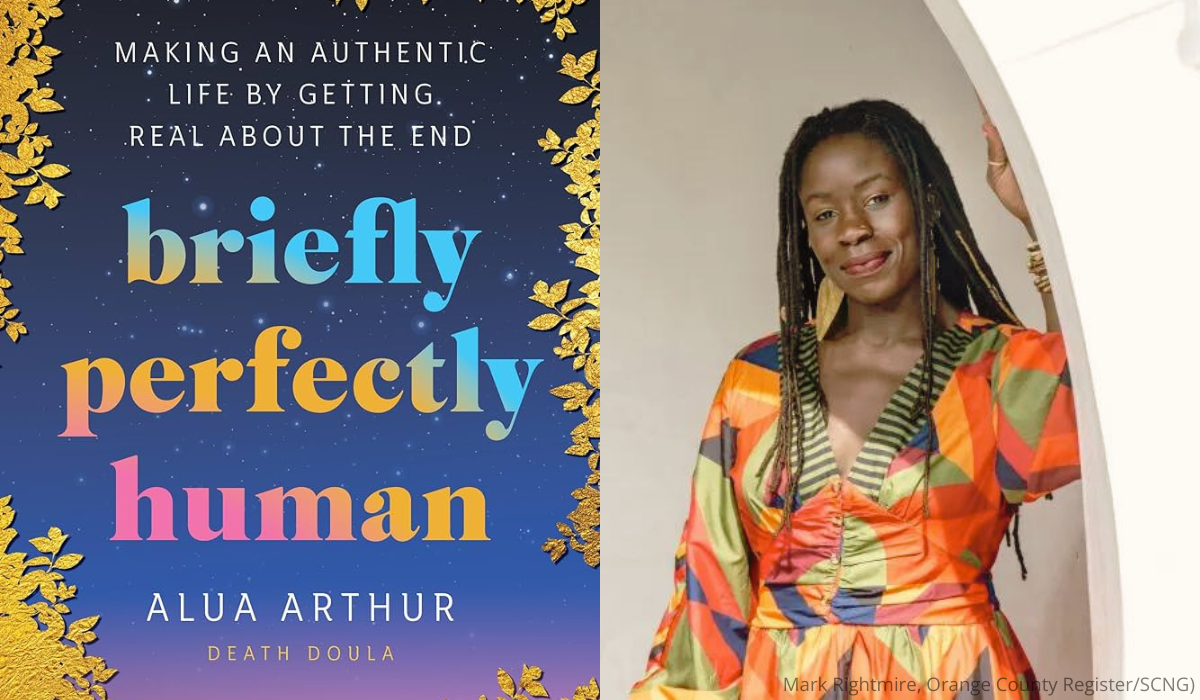Congressman Jamie Raskin is on a Mission to Protect the Country He Wanted to Leave His Son. Now, The January 6th Committee Member Shares What’s in His Heart After Losing Him
In the week between December 31, 2020, and January 6, 2021, my family suffered two impossible traumas: the shattering death by suicide of my beloved 25-year-old son, Tommy, and the violent mob insurrection at the U.S. Capitol that left several people dead, more than 140 Capitol and Metropolitan Police officers wounded and injured, hundreds of people (including several in our family) fleeing for their lives, and the nation shaken to its core.
Although Tommy’s death and the January 6 insurrection were cosmically distinct and independent events, they were thoroughly intertwined in my experience and my psyche. I will probably spend the rest of my life trying to disentangle and understand them to restore coherence to the world they ravaged.
Each of these traumas was itself the product of an underlying crisis. Tommy’s death by suicide followed a merciless advance of mental illness that seized and ultimately controlled the dazzling mind and pure heart of this brilliant and empathetic young man. Like millions of other young Americans, he grew despondent during the COVID-19 pandemic, which left him vulnerable to the darkest impulses created by his illness. Similarly, before the attempted coup of January 6 destroyed our fundamental expectations about the peaceful transfer of power in America, the norms of our constitutional democracy had already been overrun by years of media propaganda, social media disinformation, racist violence, conspiracy theorizing, and authoritarian demagoguery.
When these underlying crises turned into the private and public traumas of suicide and violent insurrection, they demolished all the core assumptions I carried around with me each day—that my children would be healthy and alive, that they would let my wife, Sarah, and me know if they needed anything, that no political party or power elite would try to overthrow our constitutional democracy, that the country would continue to successfully grow beyond its historic baseline of violent white supremacy and a racial caste system.
I was devastated and crushed by these traumatic events. And yet, at a moment of impenetrable darkness, the lowest point I have ever experienced—a time when I went for days without sleeping or eating a real meal—the Speaker of the House of Representatives, Nancy Pelosi, threw me a lifeline: acting on astounding faith and something like political clairvoyance, she offered me an invitation that was akin to a challenge, a dare to rise up from my despondency and to bring others along with me. On the day before we voted in the House of Representatives to impeach Donald Trump, when it was clear the votes were there, she asked me to be the lead impeachment manager, to organize and lead the team of House members we would send over to the U.S. Senate to prosecute Trump for inciting violent insurrection against Congress on January 6.
It was the hardest thing I have ever been asked to do professionally, at the most difficult time I have ever experienced personally, but the assignment became, paradoxically, a salvation and sustenance for me, a pathway back to the land of the living and a fountain of hope that renewed and strengthened my radical faith in democracy, the system of beliefs and practices that upholds the equal rights of the individual and demands that we all work together to take care of our common inheritance.
Speaker Pelosi’s invitation forced me to draw upon the deepest springs of meaning and clarity I had in life: the love of my three children and my wife, Sarah; the wisdom of my late parents; Tommy’s remarkable political values; the strength of my siblings; the dreams and fears of my childhood; the insight of my teachers and creativity of my students; the inextinguishable resiliency and solidarity of my Maryland constituents; the genius of my political and academic colleagues; the vision of my mentors and boundless generosity of my friends; the amazing constancy of my staff; and the moral courage of my fellow citizens past and present. These things inspired me to make a case not just against a savagely corrupt president, but for American constitutional democracy itself.
In my book, Unthinkable, I did not set out to write a tome about Donald Trump. Quite the opposite. It is a book about the kind of people whose dreams and work have allowed us to survive Donald Trump and his sinister incitement of racism and hatred among Americans who feel displaced and threatened by the uprooting of America’s racial caste system.
In Unthinkable, you will find young moral visionaries like Tommy Raskin and change agents like his remarkable sisters, Tabitha and Hannah, and their mom, Sarah. You’ll find brave officers Harry Dunn, Michael Fanone, Eugene Goodman, Daniel Hodges, Aquilino Gonell, and all the other men and women in blue who risked and sometimes gave life and limb in the bitter, protracted, hand-to-hand “trial by combat” (as Rudy Giuliani eagerly described what was to come a few hours before it happened) at the Capitol; the fearless at-large representative from Wyoming, Liz Cheney, an uncompromising partisan of the Constitution; our stunningly compassionate president, Joe Biden; and of course, the indomitable Nancy Pelosi, whose patriotic love for our country and our people is a force of nature that future generations of Americans will marvel at and celebrate long after we are all gone.
These democratic heroes, people who rise up to resist and oppose tyrants, are not “larger-than-life figures,” as Donald Trump is always described. Tyrants tell stories only about themselves because history for them begins and ends with their own insatiable appetites, but my interest is in the good people, the non-narcissists, the ordinary, life-size human beings—just the right size for a democracy in which each person has one vote and one voice, where we are all “created equal” and given one chance (well, maybe a second one, if you need it and deserve it) to lead a life of decency and integrity.
I have learned that trauma can steal everything from you that is most precious and rip joy right out of your life. But, paradoxically, it can also make you stronger, expand your wisdom, and empower you to make deeper connections to other people by touching their misfortune and integrating their loss and pain into your own.
If this is true for one person, it might be true also for a nation.
The truth is that all Americans but the perpetrators have been shaken by the interlocking dysfunctions and disorders of our times. If we can be honest about the causes and culprits, if we can recapture the spirit of American pragmatism, then we will find ways to redeem the vast promise of our country against the dangerous lies and fantasies holding us back. We can renew. We can rebuild.
Reprinted from Unthinkable: Trauma, Truth, and the Trials of American Democracy by Jamie Raskin with permission from Harper, an imprint of HarperCollins.




